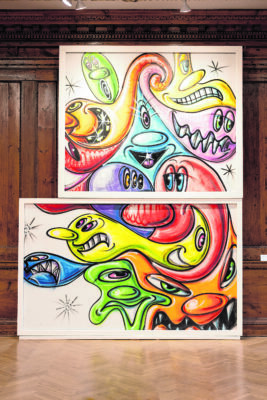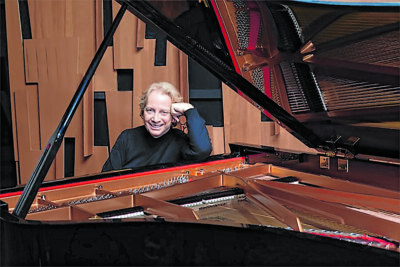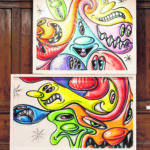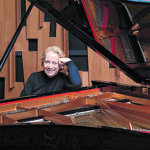Ex-Rascal touring and promoting new memoir
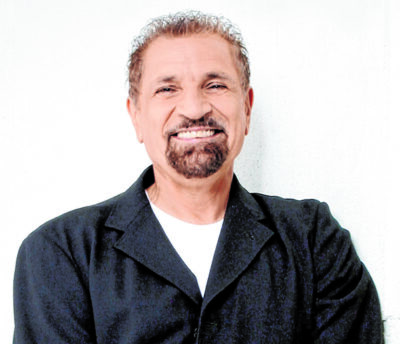
(Photo courtesy of Felix Cavaliere)
If Felix Cavaliere decided to retire tomorrow, the blue-eyed soul singing organ player and founding member of The Rascals could do that on the back of a boatload of accomplishments. Membership in a number of halls of fame (Rock & Roll, Songwriter, Vocal Group, Grammy and Musicians), three number one hits, seven Top 10 hits and 20 Top 40 hits. And that doesn’t even touch on the enormous influence Cavaliere had on a generation of musicians that include Billy Joel, Bruce Springsteen and Little Steven Van Zandt. But instead, the 77-year-old Westchester native is not only hitting the road with Rascal bandmate Gene Cornish following a stint on the road with fellow ‘60s survivor and Monkee Micky Dolenz earlier this year, but promoting his new autobiography, Felix Cavaliere: Memoir Of a Rascal. It’s a project that took four years to take and proved to be a rewarding experience despite the extended length of time it took to pen.
“I have a new appreciation for Stephen King because this was a lot of work,” he said. “I did this because I’m in my seventh decade and I was only a Rascal for five or six years of my life. What about the other years? I thought people might find that interesting. In the end, I’m happy to have relived the memories of my family, kids, grandkids and guru Swami Paramahansa Yogananda.”
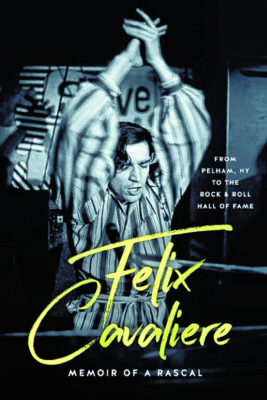 The idea for this memoir came about when Van Zandt convinced the original Rascals quartet of Cavaliere, Cornish, Dino Danelli and Eddie Brigati to reunite in 2012 for The Rascals: Once Upon a Dream, a combination concert/theatrical event that told the history of the band. It eventually was staged on Broadway and taken on the road for a national tour. Plans to return to the Great White Way in December 2013/January 2014 were instead canceled. During this time, Cavaliere realized the history of his group was based on four identical perspectives that didn’t always necessarily gibe.
The idea for this memoir came about when Van Zandt convinced the original Rascals quartet of Cavaliere, Cornish, Dino Danelli and Eddie Brigati to reunite in 2012 for The Rascals: Once Upon a Dream, a combination concert/theatrical event that told the history of the band. It eventually was staged on Broadway and taken on the road for a national tour. Plans to return to the Great White Way in December 2013/January 2014 were instead canceled. During this time, Cavaliere realized the history of his group was based on four identical perspectives that didn’t always necessarily gibe.
“The interesting thing is that the press conferences [following those performances] would have the four of us onstage and they would ask us questions,” he recalled. “I noticed that every single one of us had a different answer for the same question. I tell it as a joke but what is history? The last man standing writes the book and what happened? Look at this current situation in Ukraine. What do you read, Russian books or NATO books? Where is the truth? It really changed my thinking about a lot of things. I decided to write my views, opinions and memories down. Then it came across to my mind that I’m into my seventh decade. I was only a Rascal for five or six years of my life. What about the other years? Maybe somebody would find it interesting and that’s what I did.”
The flow of Memoir of a Rascal is one that sounds as if you’re kicking back with Cavaliere as he relives a bucolic childhood learning classical music before getting bit by the rock and roll bug. The Nashville resident is frank about his struggles to please his parents, who expected him to become a doctor while he harbored dreams of becoming a professional musician, even while he went off to Syracuse University, where he counted Lou Reed among his classmates. Cavaliere shares the pain of losing his mother at the age of 13 and the eventual path to spiritual enlightenment he found when he met his guru. It’s a relationship he’s credited with steadying a life that found him navigating fatherhood, divorce, the dissolution of The Rascals and the passing of his ex-wife and a child. Both in the autobiography and in conversation, the septuagenerian Rock & Roll Hall of Famer is quick to credit the impact the late Yogananda had on his life.
“In the book, I mention how much a help my guru was in my career and life,” he said. “This man put me on a path that I never left and I’m so grateful for that. I’m still on that path, still healthy, still able to work and sing because of a lot of the tenets he taught me. It’s pretty simple—you take care of your mind, soul and your body and you’re going to be alright.”
Now that he’s back on the road with Cornish, the wellness Cavaliere has practiced is serving him well touring, a process that can quickly take its toll on musicians half Cavaliere’s age. But with the help of his long-serving musical collaborators, he’s eager to play live as the world continues to emerge from the pandemic.
“I’ve got a fantastic band down here in Tennessee, where it’s very easy for groups to happen because this place is all about people getting together, writing, creating and doing something,” he said. “It’s so interesting because the Rascals, in total, were together for five years and we just disintegrated. I’ve been together with these guys, with the exception of one member, for 17 or 20 years. We’ve got a symbiotic type of relationship that shows and sounds on stage. It’s like a musical version of making love. It’s a joy. These songs are alive in this band. We just did a show in Boston. It just kicked butt. We’re coming through after the pandemic and everyone is anxious to get out and play—it’s obvious. You can feel it. It’s like horses that have been locked up in a barn all winter.”
Recent years have also found Cavaliere continuing to challenge himself by tapping into the classical music training that was such a part of his early creative evolution.
“We’ve also kind of indulged in the past with symphonic shows,” he said. “I’ve got my charts written out for symphony. I’ve done two of them so far and I really want to do some more. It’s kind of full circle for me coming from classical music to the symphony orchestra. It’s a difficult world to crack into because first of all, the tickets and shows are sponsored a year in advance. They’re all ready for 2023 already. It’s also a pretty selective audience. They buy these subscriptions by the year for the concert halls. I really want to do more of that if I can.”
With another album under his belt that’s he’s aiming to release by early next year, Cavaliere is being driven by a clean life, love of family and an insatiable appetite for making music that’s keeping him youthful and on the road.
“Having done this book, my biggest takeaway is ‘How lucky am I?,’” he said. “Not only have I had an unbelievable career,’ but an unbelievable life. It’s not perfect. I lost a daughter. I lost a band. I’ve been divorced. I lost a wife. But you know what? I’m very thankful because when you get to the end of the book, I’m still going.”
Felix Cavaliere’s Fave Masters Of The ’88s
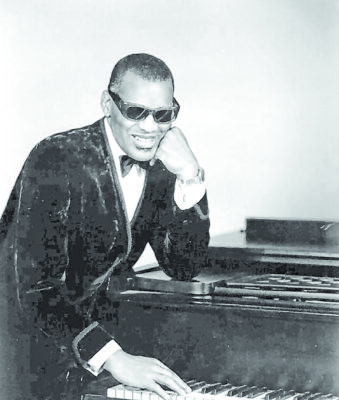
(Public domain)
Ray Charles (September 23, 1930 to June 10, 2004)
“I was a little white kid growing up in Westchester County listening to classical music the first time I heard him, which was on a little transistor radio tuned to WINS playing ‘What’d I Say.’ It was really influential. You could hear the soul and depth of him through his music. I couldn’t figure out how he tapped into that depth and crying. Later on I realized it came through a lot of grief and pain.”
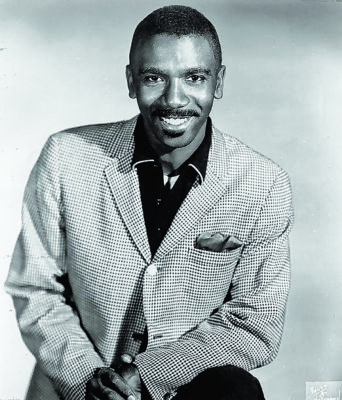
(Public domain)
Jimmy Smith (December 8, 1925 to February 8, 2005)
“You have to realize that like most organ players, he played the bass with his feet and hands. The melody was played with his right hand. The way he played bass—he obviously studied bass because he wasn’t just tapping the roots of the chord. He was playing lines and those lines now are like classical training for the Hammond organ. His sounds were brilliant. They weren’t kid sounds—they were funk sounds.”
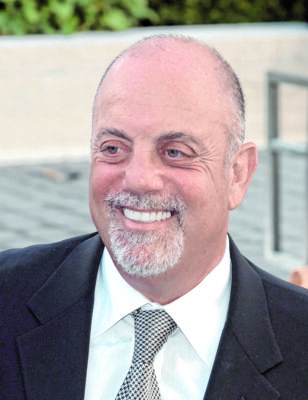
(Photo by David Shankbone/CC BY 3.0)
Billy Joel (May 9, 1949 to the present)
“He’s got amazing chops. The first time I met him was in the early days when he was this young Long Island prodigy who loved and admired The Rascals. Musically, he speaks for himself. He’s got a gift for emulating other people’s music with class, like Frankie Valli and the Four Seasons. The other thing I admire about him is that he’s a fighter. He had a financial problem with a manager where he was financially bleeding. But he picked himself up, didn’t cry about it, didn’t disappear and slide into drugs. I never heard him bitch about it. He’s a survivor who’s back on his feet again who came back and kicked ass.”

